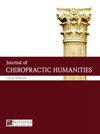Self-Perceived Psychological, Social, Academic and Personal Impact of the COVID-19 Pandemic on Chiropractic Students in South Africa
Q3 Health Professions
引用次数: 0
Abstract
Objective
The purpose of this observational study was to determine the social, personal, psychological, and academic self-perceived impact of the COVID-19 pandemic on Chiropractic students in South Africa.
Methods
This study used a quantitative, descriptive, cross-sectional design. A self-reported, Likert-scale survey of 35 online questions, administered through QuestionPro, was sent to Chiropractic students registered at 2 South African institutions from November 2022 until January 2023. The responses were anonymous. The survey was validated using a pilot study and focus group.
Results
A 51.65% (n = 97) response rate was recorded. A total of 60.00% (n = 113) of respondents expressed discomfort if individuals did not wear masks and 73.40% (n = 138) of respondents reported to have experienced conflicts due to prolonged time spent with household members in limited personal space. The respondents also experienced personal self-perceived impacts, such as 69.00% (n = 130) reported having reduced productivity, 42.00% (n = 79) increased financial difficulties, 50.00% (n = 94) decreased physical activity, and 80.85% (n = 152) spent more time on social media. Participants self-reported that these challenges had detrimental effects on their mental health. These included increased anxiety (92.02%; n = 171), difficulties in thought control (75.50%; n = 142), withdrawal from social interactions (80.32%; n = 151), decreased motivation (90.96%; n = 171), and concentration issues (89.89%; n = 169). A portion of the students also reported a decline in academic marks (43.62%; n = 82) and practical skills (76.60%; n = 144).
Conclusion
Most Chiropractic student respondents perceived that the COVID-19 pandemic negatively impacted their social and personal functioning, self-reported mental health and overall academic progress.
2019冠状病毒病大流行对南非脊椎按摩专业学生自我感知的心理、社会、学术和个人影响
目的本观察性研究的目的是确定COVID-19大流行对南非脊椎按摩专业学生的社会、个人、心理和学术自我感知的影响。方法本研究采用定量、描述性、横断面设计。从2022年11月到2023年1月,一份由35个在线问题组成的李克特量表自我报告调查,通过QuestionPro进行,发送给在南非两所机构注册的脊椎按摩专业学生。这些回答都是匿名的。该调查通过试点研究和焦点小组进行了验证。结果有效率为51.65% (n = 97)。共有60.00% (n = 113)的受访者表示,如果个人不戴口罩会感到不适,73.40% (n = 138)的受访者报告说,由于与家庭成员在有限的个人空间中度过的时间过长,他们经历过冲突。受访者还经历了个人自我感知的影响,例如69.00% (n = 130)报告生产力下降,42.00% (n = 79)报告经济困难增加,50.00% (n = 94)报告体力活动减少,80.85% (n = 152)报告在社交媒体上花费更多时间。参与者自我报告说,这些挑战对他们的心理健康有不利影响。这些症状包括焦虑增加(92.02%,n = 171)、思想控制困难(75.50%,n = 142)、逃避社会交往(80.32%,n = 151)、动机下降(90.96%,n = 171)和注意力集中问题(89.89%,n = 169)。也有一部分学生成绩下降(43.62%,n = 82),实践技能下降(76.60%,n = 144)。结论大多数脊椎按摩专业学生认为新冠肺炎大流行对他们的社会和个人功能、自我报告的心理健康和整体学业进步产生了负面影响。
本文章由计算机程序翻译,如有差异,请以英文原文为准。
求助全文
约1分钟内获得全文
求助全文
来源期刊

Journal of Chiropractic Humanities
Medicine-Complementary and Alternative Medicine
CiteScore
1.70
自引率
0.00%
发文量
7
 求助内容:
求助内容: 应助结果提醒方式:
应助结果提醒方式:


